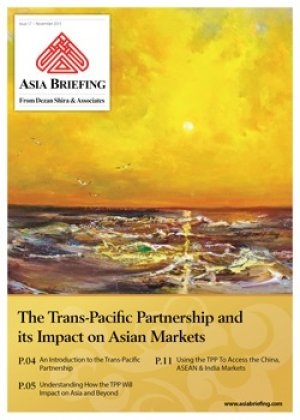ASEAN Regulatory Brief: Philippines Disaster Coverage, Cambodia Tax Amendments, and Singapore-Laos DTAA
Philippines: Government Considers Mandatory Disaster Coverage
The Philippines government is considering a mandatory household and business insurance cover against natural disasters. While some individuals take out policies against natural threats, the Philippine Insurers and Reinsurers Association (PIRA) state that a mandatory scheme allows for the significant amount of funds required to meet the large claims that are likely to be made.
The developments come in the context of the Philippines being prone to natural disasters like typhoons and flooding. The Super Typhoon Haiyan, three years ago, cost the economy around US$ 14 billion, out of which only US$ 2 billion was covered by insurance. A study by international insurer Lloyd’s City Risk Index 2015-25 showed that around half of Manila’s GDP of US$ 201 billion is at risk of being lost due to a natural calamity without any insurance coverage. The proposal is backed by private sector insurers as well as the World Bank. If passed, the bill would boost the insurance industry.
 RELATED: International Tax Planning Services from Dezan Shira & Associates
RELATED: International Tax Planning Services from Dezan Shira & Associates
Cambodia: Tax amendments to Take Effect in January 2017
Cambodia has finalized the 2017 Law on Financial Management, which will take effect on January 1, 2017. The law on tax deals with minimum tax, salary, tax on profit, and branch office and dividend distributions. We take a quick look at some of these.
Minimum Tax: As per the draft, the government has abolished the 1 percent monthly pre-payment of Tax on Profit (ToP) and Annual Minimum Tax for taxpayers that qualify. The Minimum Tax is exempted for companies that have proper accounting records with external audits by reputable agencies.
Salary: The first two tiers of the monthly tax on salary rates will have their ceilings raised. Presently, employees earning a salary of up to US$ 200 do not have to pay tax, this will now be raised to US$ 250. Similarly, employees that earn a salary of up to US$ 312 are currently taxed at 5 percent, this will be raised to US$ 375.
Branch Office and Dividend Distributions: Any remittance from income sourced in Cambodia made by a company’s branch office to its overseas headquarters will be subject to either a 20 or 30 percent ToP or subject to withholding tax of 14 percent if the income is generated by a non-resident through a permanent establishment in Cambodia.
Dividend distribution in a taxable year is subject to Additional Tax on Dividend Distribution (ATDD) on the difference between ToP payable and the actual ToP paid. In addition, as per the new law, “stock dividends” will be excluded in the definition of dividends.
 RELATED: Donald Trump in the White House: Implications for the Future of the TPP and Free Trade in ASEAN
RELATED: Donald Trump in the White House: Implications for the Future of the TPP and Free Trade in ASEAN
Singapore: Government Signs Double Taxation Avoidance Agreement with Laos
Singapore has signed an Agreement of Double Taxation Avoidance (DTA) with Laos, which came into effect on November 11. The agreement provides clarity on tax issues and eliminates double taxation on cross-border transactions between the two countries. Among the different rules, interest that is gained in one country and paid to the residents of another country may be taxed in that country. However, the interest may also be taxed in the country where interest is generated according to its laws. Nevertheless, the tax charged cannot exceed 5 percent of the gross amount of interest in the country where the resident belongs. The agreement also provides for the reduction or exemption of tax on certain types of income. Any tax that will be charged will be assessed from January 1, 2017 despite the agreement already coming into effect.
|
Asia Briefing Ltd. is a subsidiary of Dezan Shira & Associates. Dezan Shira is a specialist foreign direct investment practice, providing corporate establishment, business advisory, tax advisory and compliance, accounting, payroll, due diligence and financial review services to multinationals investing in China, Hong Kong, India, Vietnam, Singapore and the rest of ASEAN. For further information, please email asean@dezshira.com or visit www.dezshira.com. Stay up to date with the latest business and investment trends in Asia by subscribing to our complimentary update service featuring news, commentary and regulatory insight. |
Annual Audit and Compliance in ASEAN
For the first issue of our ASEAN Briefing Magazine, we look at the different audit and compliance regulations of five of the main economies in ASEAN. We firstly focus on the accounting standards, filing processes, and requirements for Indonesia, Malaysia, Thailand and the Philippines. We then provide similar information on Singapore, and offer a closer examination of the city-state’s generous audit exemptions for small-and-medium sized enterprises.
 The Trans-Pacific Partnership and its Impact on Asian Markets
The Trans-Pacific Partnership and its Impact on Asian Markets
The United States backed Trans-Pacific Partnership Agreement (TPP) includes six Asian economies – Australia, Brunei, Japan, Malaysia, Singapore and Vietnam, while Indonesia has expressed a keen willingness to join. However, the agreement’s potential impact will affect many others, not least of all China. In this issue of Asia Briefing magazine, we examine where the TPP agreement stands right now, look at the potential impact of the participating nations, as well as examine how it will affect Asian economies that have not been included.
 An Introduction to Tax Treaties Throughout Asia
An Introduction to Tax Treaties Throughout Asia
In this issue of Asia Briefing Magazine, we take a look at the various types of trade and tax treaties that exist between Asian nations. These include bilateral investment treaties, double tax treaties and free trade agreements – all of which directly affect businesses operating in Asia.










